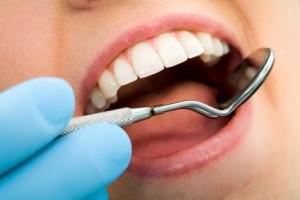 NYU dental researchers have found the first long-term evidence that periodontal (gum) disease may increase the risk of cognitive dysfunction associated with Alzheimer’s disease in healthy individuals as well as in those who already are cognitively impaired.
NYU dental researchers have found the first long-term evidence that periodontal (gum) disease may increase the risk of cognitive dysfunction associated with Alzheimer’s disease in healthy individuals as well as in those who already are cognitively impaired.
The NYU study offers fresh evidence that gum inflammation may contribute to brain inflammation, neurodegeneration, and Alzheimer’s disease. The research team, led by Dr. Angela Kamer, Assistant Professor of Periodontology & Implant Dentistry, examined 20 years of data that support the hypothesis of a possible causal link between periodontal disease and Alzheimer’s disease.
“The research suggests that cognitively normal subjects with periodontal inflammation are at an increased risk of lower cognitive function compared to cognitively normal subjects with little or no periodontal inflammation,” Dr. Kamer said.
Dr. Kamer’s study, conducted in collaboration with Dr. Douglas E. Morse, Associate Professor of Epidemiology & Health Promotion at NYU College of Dentistry, and a team of researchers in Denmark, builds upon a 2008 study by Dr. Kamer which found that subjects with Alzheimer’s disease had a significantly higher level of antibodies and inflammatory molecules associated with periodontal disease in their plasma compared to healthy people.
Dr. Kamer’s latest findings are based on an analysis of data on periodontal inflammation and cognitive function in 152 subjects in the Glostrop Aging Study, which has been gathering medical, psychological, oral health, and social data on Danish men and women. Dr. Kamer examined data spanning a 20-year period ending in 1984, when the subjects were all 70 years of age. The findings were presented by Dr. Kamer at the 2010 annual meeting of the International Association for Dental Research July 16, in Barcelona, Spain.
Dr. Kamer’s team compared cognitive function at ages 50 and 70, using the Digit Symbol Test, or DST, a part of the standard measurement of adult IQ. The DST assesses how quickly subjects can link a series of digits, such as 2, 3, 4, to a corresponding list of digit-symbol pairs, such as 1/-,2/┴ … 7/Λ,8/X,9/=. Dr. Kamer found that periodontal inflammation at age 70 was strongly associated with lower DST scores at age 70. Subjects with periodontal inflammation were nine times more likely to test in the lower range of the DST compared to subjects with little or no periodontal inflammation.
This strong association held true even in those subjects who had other risk factors linked to lower DST scores, including obesity, cigarette smoking, and tooth loss unrelated to gum inflammation. The strong association also held true in those subjects who already had a low DST score at age 50.
Dr. Kamer plans to conduct a follow-up study involving a larger, more ethnically diverse group of subjects, to further examine the connection between periodontal disease and low cognition.
In addition to Dr. Morse, Dr. Kamer’s coinvestigators included Dr. Poul Holm-Pedersen, Professor and Director of the Gerontology & Oral Health Research Center; Dr. Erik Lykke Mortensen, Professor of Psychology; and Dr. Birita Ellefsen, Assistant Professor of Gerontology & Oral Health, all at Copenhagen University in Denmark; and Dr. Kirsten Avlund, Professor of Social Medicine at the Institute of Public Health in Copenhagen.
New York University (2010, August 4). Gum inflammation linked to Alzheimer’s disease. ScienceDaily. Retrieved August 4, 2010, from http://www.sciencedaily.com¬ /releases/2010/08/100803112811.htm











